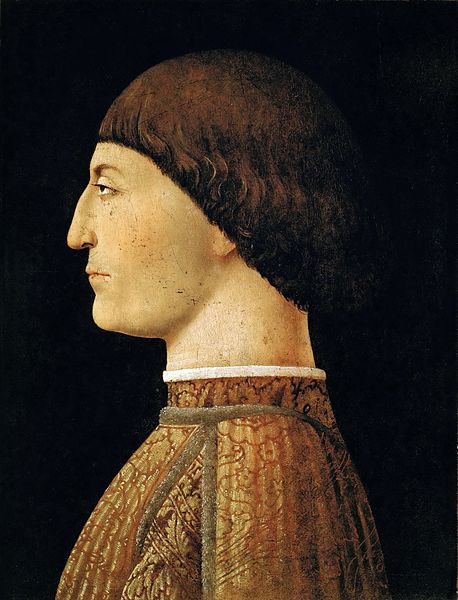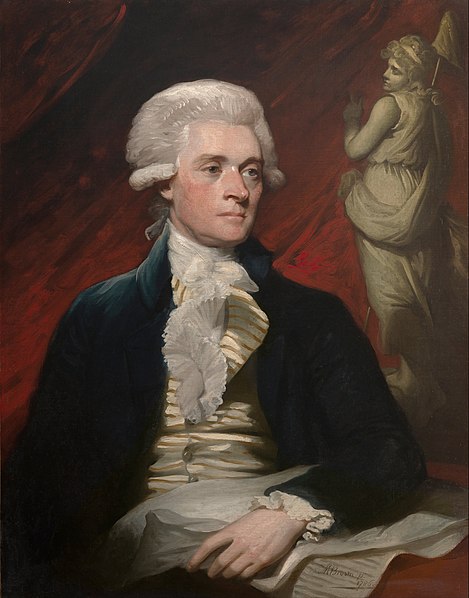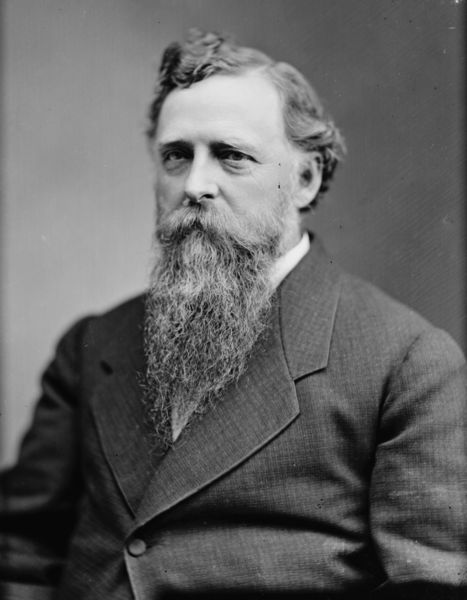The Cantos by Ezra Pound is a long poem in 109 sections plus a number of drafts and fragments added as a supplement at the request of the poem's American publisher, James Laughlin. Most of it was written between 1915 and 1962, although much of the material in the first three cantos was abandoned or redistributed in 1923, when Pound prepared the first instalment of the poem, A Draft of XVI Cantos. It is a book-length work, widely considered to present formidable difficulties to the reader. Strong claims have been made for it as the most significant work of modernist poetry of the twentieth century. As in Pound's prose writing, the themes of economics, governance and culture are integral to its content.
Opening page of the first American edition, published 1933
Sigismondo Pandolfo Malatesta "built a temple so full of pagan works" (Canto XI). Portrait by Piero della Francesca.
Venice: "Flat water before me, / and the trees growing in water, / Marble trunks out of stillness, / On past the palazzi, / in the stillness, The light now, not of the sun" (Canto XVII)
Thomas Jefferson, who was, in Pound's view, a new Sigismondo Pandolfo Malatesta.
Ezra Weston Loomis Pound was an expatriate American poet and critic, a major figure in the early modernist poetry movement, and a collaborator in Fascist Italy and the Salò Republic during World War II. His works include Ripostes (1912), Hugh Selwyn Mauberley (1920), and his 800-page epic poem, The Cantos.
Pound photographed in 1913 by Alvin Langdon Coburn
Thaddeus Coleman Pound, Pound's paternal grandfather, in the late 1880s
In his Cheltenham Military Academy uniform with his mother, 1898
Hilda Doolittle (H.D.), c. 1921








